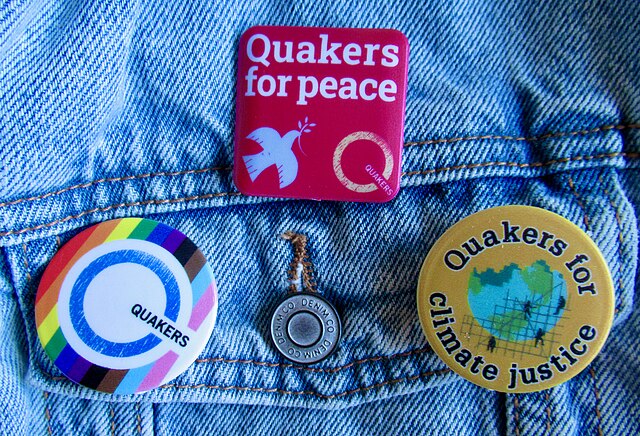A group of about thirty Quakers, members of the Religious Society of Friends, are walking across four U.S. states on their way to Washington, D.C. This isn’t just a protest—it’s an act of faith. A prayer in motion, against the tightening of immigration policies under the Trump Administration.
The march begins in a place steeped in meaning: Flushing, in Queens, the cradle of American Quakerism. It was here, in 1657, that the Flushing Remonstrance was written—a historic plea to end religious persecution in the Dutch colony of New Netherland. The marchers will carry a copy of the document to Congress, a symbolic reminder of the nation’s founding promise of liberty. “We’re not just walking toward the Capitol,” says participant Max Goodman. “We’re walking toward an idea of America that feels increasingly out of reach.”
New executive orders have authorized federal authorities to enter places of worship—a line many religious communities see as dangerously crossed. And the Quakers aren’t alone in sounding the alarm. Baptists, Sikhs, Jews, and other Christian groups have joined in condemning what they see as a direct assault on religious freedom. Though a legal challenge was dismissed by a federal court, the movement has chosen to respond with the power of witness and symbolism.
Jess Hobbs Pifer, a 25-year-old theology and law student, explains the march’s purpose: “We’re physically covering the distance between the government’s stated values and the decisions it’s actually making. We want people to hear the sound of our footsteps.”
For Quakers, every person carries a divine light within. It’s a belief that translates into political action—through nonviolence, equality, and the defense of human rights. From the abolitionist movement to women’s suffrage, from anti-war protests to civil rights marches, Quakers have long stood on the front lines of moral resistance. This quiet yet forceful march continues that legacy.
Ross Brubeck, one of the organizers, speaks of a deeper threat: “When fear becomes normalized inside churches, mosques, and synagogues, the foundation of our shared civic life begins to crack. That’s what we’re trying to warn against.”
Against a vision of power as unilateral and forceful, the Quakers offer a different idea of justice—one rooted in pluralism and the protection of minorities. That’s why they carry an upside down American flag. Not as provocation, they say, but as a distress signal of a country in danger. And watching in silence is no longer an option.
The march will culminate in a formal gesture, but the journey won’t end there. For the Quakers, walking is already an act of resistance—an expression of faith in its most radical, political form. Even if no one listens. Even if power refuses to yield. Because, as they say, “the point is not to arrive. It’s to keep going.”











